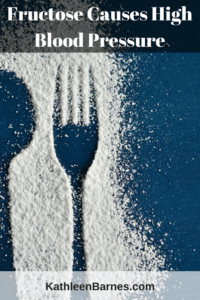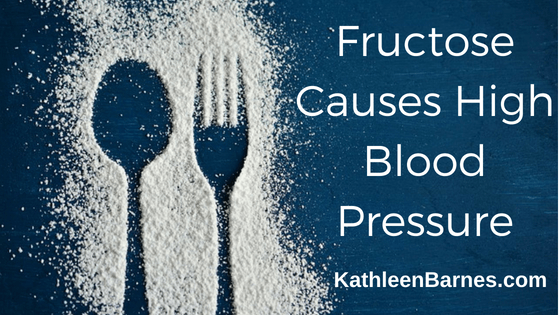 Most of us now understand that table sugar is detrimental to our health, not only to our waistlines, but in myriad other ways, including causing inflammation that leads to a host of health problems including high blood pressure and diabetes. I don’t need to go all the way down the list because I know I’m preaching to the choir for most of you.
Most of us now understand that table sugar is detrimental to our health, not only to our waistlines, but in myriad other ways, including causing inflammation that leads to a host of health problems including high blood pressure and diabetes. I don’t need to go all the way down the list because I know I’m preaching to the choir for most of you.
High fructose corn syrup (HFCS) is a comparative Johnny-come-lately to the sugar dangers radar screen and it’s a subject that bears closer examination.
Table sugar is composed of fructose and glucose. You might say,
“But fructose is a natural fruit sugar!”
You’d be right. The glucose molecule is needed for energy by the human body, so it is a necessary nutrient. No, it’s not necessary in the form of table sugar, but it’s found naturally in virtually all carbohydrates, in varying amounts depending on whether you’re looking at a piece of broccoli or a serving of white rice.
Beware of fructose
Fructose, on the other hand, is converted into a range of waste products in the human body within minutes, including uric acid.
Uric acid is a major inflammatory compound that, among other things, causes high blood pressure, a major contributing factor for heart attack and stroke.
Without getting too technical, let’s say that high uric acid levels in the body cause lower nitric oxide levels, constricting blood vessels and raising blood pressure. Uric acid excess also contributes to kidney disease, fatty liver, all types of cardiovascular disease and pre-eclampsia in pregnant women.
Let’s focus on hypertension for today.
Sugar consumption translates to high rate of hypertension
It’s not coincidental that, as our natural per capita sugar consumption increases, our national levels of high blood pressure have increased in tandem.
In 1800, sugar was a luxury with the average person eating less than four pounds a year. Today, it is an obsession with the average person eating an astounding 153 pounds a year. Worse yet, our national sugar addiction increased by 20 percent in just ten years, two percent a year!
On the same time frame, our national rate of hypertension went from 5% of the population in 1900 to 31% today. The connection is obvious.
If sugar isn’t bad enough, manufacturers began to substitute high fructose corn syrup for sugar in many products beginning in the mid 1970s. Your average can of Coke has 40 grams of sugar—now all of it HCFS.
HCFS is everywhere
HCFS is now found in all kinds of products, not surprisingly on the sweet ones like the breakfast cereals and breakfast pastries to which most kids are addicted, but also in some products you’d never imagine would have added sugar.
How about breads, mayonnaise, catsup (bottled BBQ sauce is even worse!), hotdogs and lunch meats, peanut butter, salad dressings, kids’ packaged snacks, spaghetti sauce and canned soups?
HFCS is a stealth ingredient in many, if not most, processed foods. It’s cheaper than sugar and the manufacturers care much more about their bottom line than about your health.
The easy answer is to avoid processed foods. The harder answer is that most of us do use them from time to time.
Be a label reader
I’ve often urged you to become an avid label reader. That skill is more important now than ever. There are bottled and canned foods that do not contain HFCS. You’ll do pretty well if you select organic store brands.
The best article I’ve read on this subject was written by Dr. Joe Mercola.
This article is definitely worth a close look, including the chart showing the natural fructose in fruit and his suggestions to limit your intake of fructose through fruit to 15 grams a day. That’s less than half a mango or just a little more than a cup of seedless grapes, much more of the less-sweet fruits like citrus fruits, most berries, apples and melons.








Nice read. Blood pressure and hypertension have been interests of mine for a long time, and I think that a balanced holistic approach is overall the most promising. You have to eat healthy, exercise, and regularly watch your blood pressure and cholesterol levels, and then things should be not too hard. We have lots of info on all that on Blood Pressure Experts, everyone interested is welcome to take a look.
Oh and don’t believe what they often tell you about good and bad cholesterine.. there’s a trick to it that most people don’t know about!